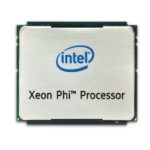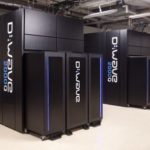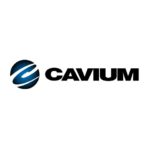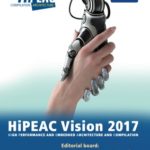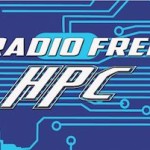Today Rescale announced the company is expanding to Europe with a new office in Munich, Germany. “Europe has always been a crucial market for Rescale,” said Rescale co-founder and CEO Joris Poort. “We are thrilled to be establishing a solid regional foundation for sales and support for our customers in Europe. Wolfgang Dreyer’s HPC expertise and deep familiarity with the region will be a tremendous asset to help serve our European customers.”
Archives for January 2017
Caltech Upgrading Demo Cluster with Intel Xeon-Phi x200 Processor
Nor-Tech reports that Caltech is upgrading its Nor-Tech demo cluster with Intel Xeon Phi. The demo cluster is a no-cost, no-strings opportunity for current and prospective clients to test-drive simulation applications on a cutting-edge Nor-Tech HPC equipped with Intel Xeon Phi and other high-demand platforms installed and configured. Users can also integrate their existing platforms into the demo cluster.
Apply Now for PRACE HPC Summer School Programs
The European PRACE organization is now accepting applications for the following expense-paid educational programs: The 2017 International Summer School on HPC Challenges in Computational Sciences and the PRACE Summer of HPC 2017 program.
D-Wave Rolls Out 2000 Qubit System
“D-Wave’s leap from 1000 qubits to 2000 qubits is a major technical achievement and an important advance for the emerging field of quantum computing,” said Earl Joseph, IDC program vice president for high performance computing. “D-Wave is the only company with a product designed to run quantum computing problems, and the new D-Wave 2000Q system should be even more interesting to researchers and application developers who want to explore this revolutionary new approach to computing.”
Video: A Hybrid Approach to Strongly Correlated Materials
Matthias Troyer frin ETH Zurich presented this talk at a recent Microsoft Research event. “Given limitations to the scaling for simulating the full Coulomb Hamiltonian on quantum computers, a hybrid approach – deriving effective models from density functional theory codes and solving these effective models by quantum computers seem to be a promising way to proceed for calculating the electronic structure of correlated materials on a quantum computer.”
GIGABYTE Selects Cavium QLogic FastLinQ Ethernet Solutions
“GIGABYTE servers – across standard, Open Compute Platform (OCP) and rack scale form factors – deliver exceptional value, performance and scalability for multi-tenant cloud and virtualized enterprise datacenters,” said Etay Lee, GM of GIGABYTE Technology’s Server Division. “The addition of QLogic 10GbE and 25GbE FastLinQ Ethernet NICs in OCP and Standard form factors will enable delivery on all of the tenets of open standards, while enabling key virtualization technologies like SR-IOV and full offloads for overlay networks using VxLAN, NVGRE and GENEVE.”
HiPEAC Vision Report Advocates Reinvention of Computing
“Computers as we know them are disappearing from view,’ asserts Koen De Bosschere, Professor at the Engineering Faculty of Ghent University, Belgium, and Coordinator of the HiPEAC network. “The evolution from desktop PC will not stop at smartphone and tablet: the devices and systems that will allow us to automate key infrastructures, such as transport, power grids and monitoring of medical conditions, are bringing us into the age of artificial intelligence. This does not mean man-sized robots, but smart devices that we program and then interact with, such as intelligent personal assistants and self-driving vehicles.”
Five Ways Scale-Up Systems Save Money and Improve TCO
The move away from the traditional single processor/memory design has fostered new programming paradigms that address multiple processors (cores). Existing single core applications need to be modified to use extra processors (and accelerators). Unfortunately there is no single portable and efficient programming solution that addresses both scale-up and scale-out systems.
Appentra Joins OpenPOWER Foundation for Auto-Parallelization
Today Appentra announced it has joined the OpenPOWER Foundation, an open development community based on the POWER microprocessor architecture. Founded in 2012, Appentra is a technology company providing software tools for guided parallelization in high-performance computing and HPC-like technologies. “The development model of the OpenPOWER Foundation is one that elicits collaboration and represents a new way in exploiting and innovating around processor technology.” says Calista Redmond, Director of OpenPOWER Global Alliances at IBM. “With the Power architecture designed for Big Data and Cloud, new OpenPOWER Foundation members like Appentra, will be able to add their own innovations on top of the technology to create new applications that capitalize on emerging workloads.”


